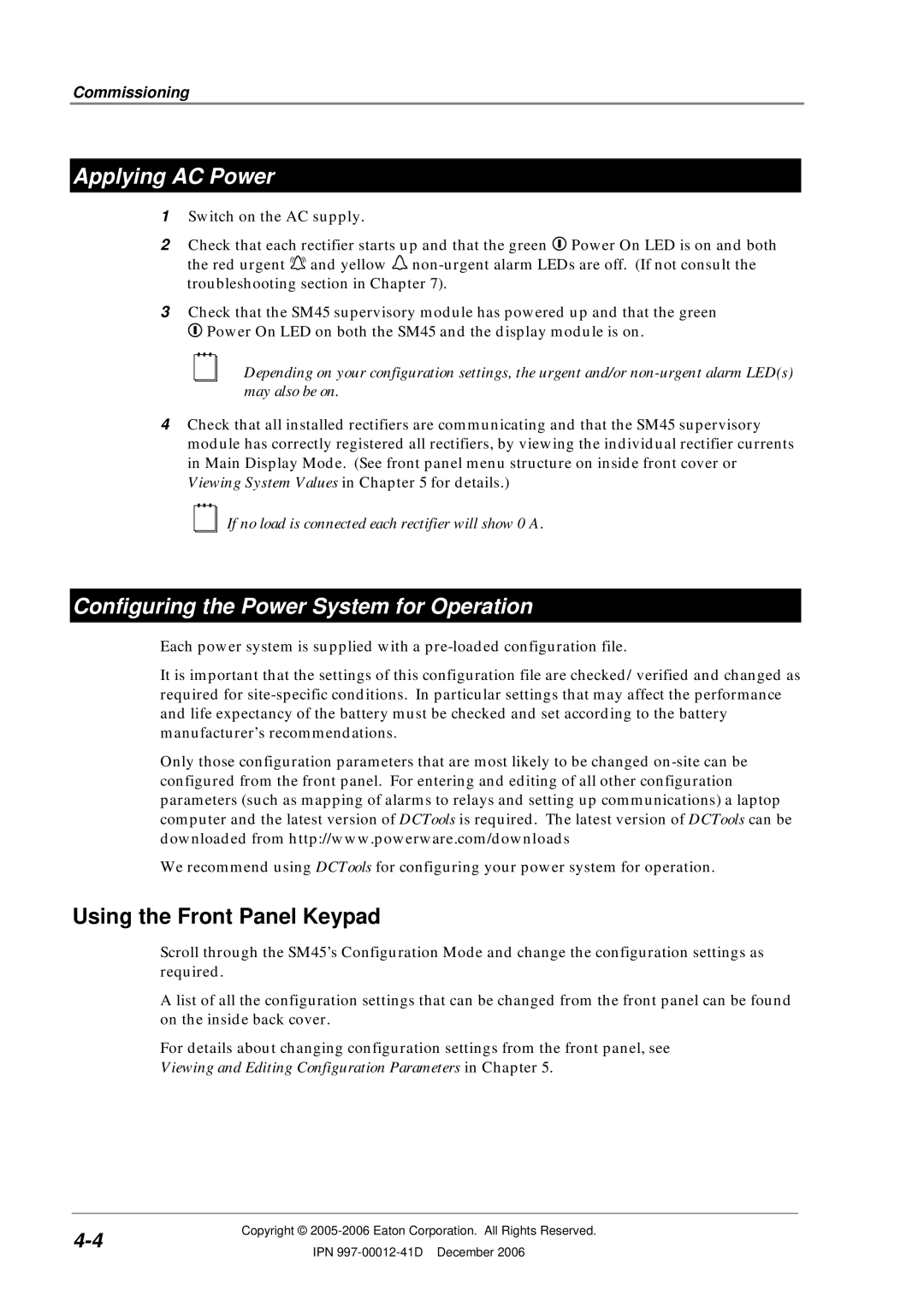
Commissioning
Applying AC Power
1Switch on the AC supply.
2Check that each rectifier starts up and that the green ![]() Power On LED is on and both the red urgent
Power On LED is on and both the red urgent ![]()
![]()
![]()
![]() and yellow
and yellow ![]()
![]()
![]()
3Check that the SM45 supervisory module has powered up and that the green ![]() Power On LED on both the SM45 and the display module is on.
Power On LED on both the SM45 and the display module is on.
Depending on your configuration settings, the urgent and/or
4Check that all installed rectifiers are communicating and that the SM45 supervisory module has correctly registered all rectifiers, by viewing the individual rectifier currents in Main Display Mode. (See front panel menu structure on inside front cover or Viewing System Values in Chapter 5 for details.)
If no load is connected each rectifier will show 0 A.
Configuring the Power System for Operation
Each power system is supplied with a
It is important that the settings of this configuration file are checked/verified and changed as required for
Only those configuration parameters that are most likely to be changed
We recommend using DCTools for configuring your power system for operation.
Using the Front Panel Keypad
Scroll through the SM45’s Configuration Mode and change the configuration settings as required.
A list of all the configuration settings that can be changed from the front panel can be found on the inside back cover.
For details about changing configuration settings from the front panel, see Viewing and Editing Configuration Parameters in Chapter 5.
Copyright © | ||
IPN | ||
|
